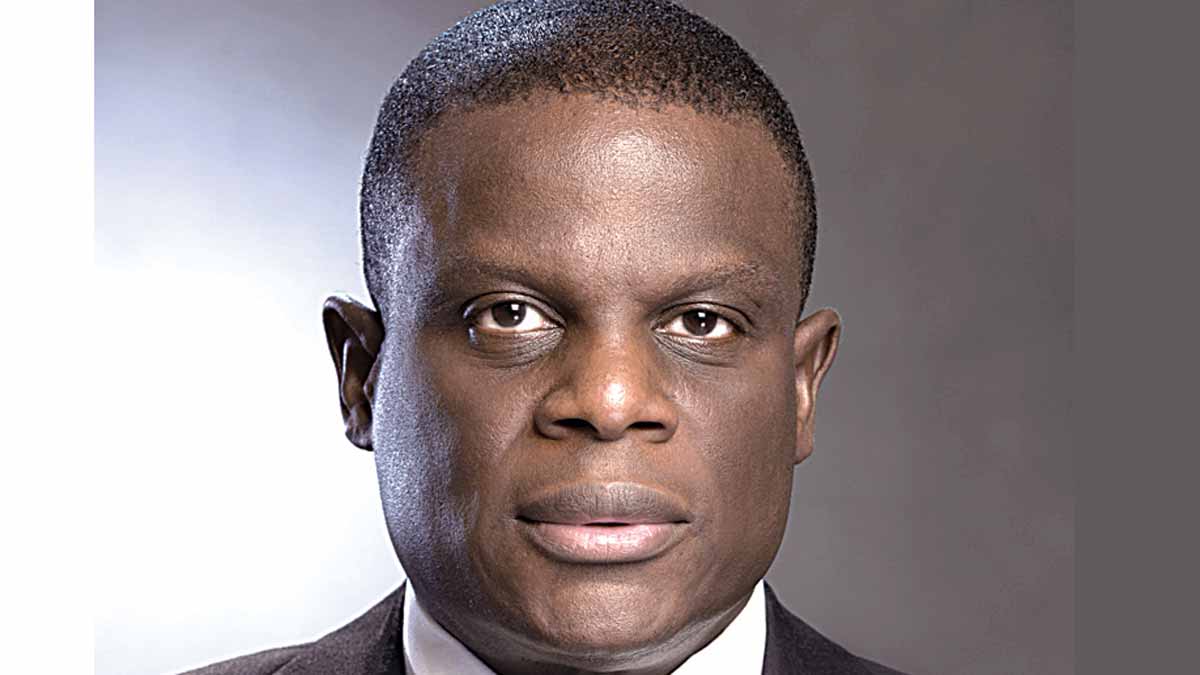As Nigeria sets its sights on inclusive and sustainable economic growth, financial inclusion has emerged not only as a social imperative but as a powerful engine for productivity, entrepreneurship, and poverty alleviation. From remote villages adopting digital wallets to micro-businesses accessing fintech loans, the country is reshaping its informal economy and redefining the foundations of national GDP.
Joining the conversation to unpack this transformation is the CEO of Phillips & Samuel Limited, former President and Co-CEO of OPay Nigeria, and Executive in Residence at Lagos Business School, Olu Akanmu.
YOU CAN ALSO READ: Meet the Japanese Investor, Hiro Mashita Helping Nigerian Founders Go Global
“Our progress has been substantial,” Akanmu began. “Cashless payment adoption has surged, even suya sellers and market women now accept pay-by-transfer using handwritten account numbers. That shift underpins the recent data on active bank accounts and cashless transactions.”
That data reflects growing momentum. Nigeria now records hundreds of millions of digital transactions and millions of active bank accounts. Crucially, financial services grew 15 percent year-on-year in Q1 2025, outpacing overall GDP growth by more than threefold.
Yet, challenges remain. Nearly 40 percent of Nigerians remain financially excluded, particularly in Northern states and among women. “If we fix inclusion in the North and address challenges facing women, we will fix the entire financial inclusion gap,” Akanmu asserted.
While fintechs have made strides among the previously banked, the truly unbanked are still largely left behind. “Digital inclusion will scale only when it’s embedded where the poor already live and operate,” Akanmu said. “That is how we reach scale.”
He proposes aggressive linkage of National Identification Numbers to the National Social Register, enabling millions to receive digital wallets and government cash transfers digitally. “Cash-In, Cash-Out agents will be critical, not just for transactions but as grassroots financial educators,” he added
Akanmu highlights cost and trust as major barriers. “Economic exclusion remains the top reason people don’t own accounts. Lack of income is two to three times more significant than infrastructural issues,” he noted.
Reducing fees for micropayments so that sending ₦1,000 feels no different than ₦25 is vital. He draws parallels with India’s UPI model. “Affordable micropayments will unlock adoption among low-income users,” a stepping stone toward universal digital finance.
Building trust is equally important. “When a small trader loses ₦10,000 to fraud, that’s half a day’s working capital. They may never use financial services again,” he warns. He praises the Central Bank of Nigeria’s efforts to clamp down on fraud, which has gradually increased confidence in fintech platforms.
Nigeria’s informal economy, including 44 million MSMEs and smallholder farmers, now has unprecedented potential through financial inclusion. Akanmu explains that digital services collapse transaction costs. “Without an account, a trader often must travel physically. With digital finance, commerce can stretch beyond the length of your arm.”
He emphasizes that linking farmers to aggregated markets and finance can transform productivity. “Once a farmer has a digital account, they can access credit, inputs, and extension services at scale,” he notes. Digital payments also enable tailors, traders, and artisans to reach customers nationwide via logistics platforms.
Nigeria’s ambition to become a $1 trillion economy requires quadrupling the current $250 billion base. Akanmu insists that financial inclusion is central to that vision. “It drives inclusion, industrialization, and lowers barriers across sectors,” he said.
But it cannot proceed in isolation. “Financial inclusion must go hand in hand with economic inclusion programs in agriculture, vocational trade, and retail, with bank agents, credit access, and support for those previously excluded,” he argued.
YOU CAN ALSO READ: LIMBSimple CEO, Ezekiel Solesi Honoured at UK Parliament for Advancing Human Capital in Africa
Akanmu’s prescription is clear. Link digital identity to financial access. Enable affordable micropayments. Expand agent networks to remote areas. Provide government-to-person transfers via digital wallets. Strengthen anti-fraud measures. Extend services beyond payments into credit, insurance, and savings.
Nations like Indonesia, India, and Brazil have already demonstrated how inclusive finance, digital ID, and targeted cash transfer can underpin mass economic participation.
As Nigeria recalibrates its economy and repositions itself in global markets, financial inclusion emerges not as a goal in itself but as a strategic backbone for growth. Olu Akanmu, with his unique blend of fintech insight and public-private leadership experience, makes a compelling case. To truly flourish, Nigeria must power finance with inclusion, and inclusion with economic opportunity.










